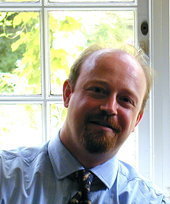 Tim meets with the Consumer Expert Group to discuss progress on radio digital switchover – and finds a lack of benefit analysis
Tim meets with the Consumer Expert Group to discuss progress on radio digital switchover – and finds a lack of benefit analysis
Tim: “On Tuesday, I came away from a meeting of the Consumer Expert Group (CEG) without much feeling of progress on the planned switchover of the UK’s radio stations from analogue to digital. As an association dedicated to consumer rights, the CEG needs to see an analysis of the cost benefit involved in a digital radio switchover. Although the Digital Switchover for TV is almost complete, the CEG is uncertain about the benefits of a switch to digital radio, which is currently used by less than 30% of the UK population.
“WaveLength and our friends at CEG have made a recommendation to the Department of Culture, Media and Sport, that around 75% of the UK population should have voluntarily switched to digital radio, through DAB devices, internet, connected TV or smart phones, before the analogue service is removed. But the pressure group representing these commercial radio stations and the BBC, Digital Radio UK, wants to make the switch as soon as penetration hits 50%. And with a cost to the switchover of up to £21 million, Digital Radio UK is asking the government to contribute an unspecified proportion of the funding needed.
“As the digital TV switchover is being achieved at no cost to the taxpayer, the CEG is asking why the government should shoulder the cost of a switch to radio – and at the Tuesday meeting, I realised that we’re no closer to getting an answer. At WaveLength, we think that the type of radio station you listen to should be up to you. We’re not keen to remove consumers’ access to a range of radio choices, in order to cut costs to radio stations.
“The CEG and WaveLength are behind digital radio for those who want it, and have seen how much comfort it can bring to our lonely and isolated beneficiaries. But we need a solid set of regulations, and a proper analysis of the costs and social benefits involved, before I or WaveLength can support a nationwide switchover. At the moment, this information still seems far off.”

